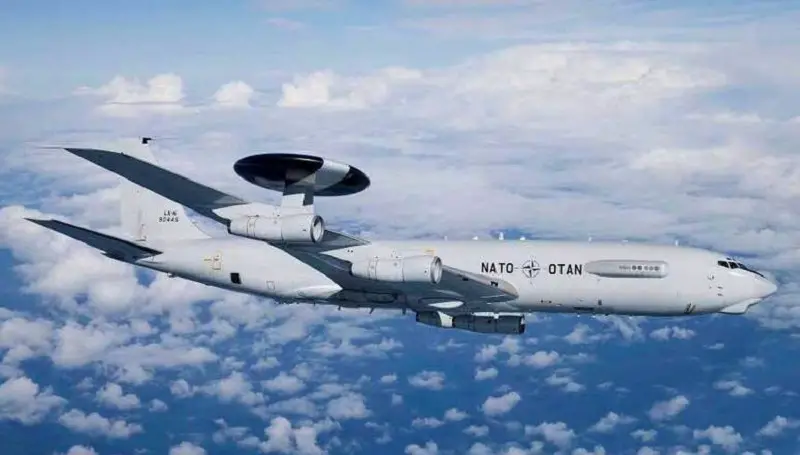NATO AWACS surveillance flights will contribute to the protection of the European Political Community Summit in Moldova. Flying over Allied airspace, NATO AWACS will guard the skies over the Summit venue from 31 May to 2 June. In response to Russia’s war in Ukraine, NATO has increased its air presence in eastern Europe with additional fighter aircraft, surveillance aircraft, and tankers. AWACS conduct regular patrols over eastern Europe and the Baltic Sea region to track Russian warplanes near NATO borders. NATO has fourteen AWACS aircraft, which are modified Boeing 707s. Flying at an altitude of around 10 km, a single AWACS can monitor the airspace within a 400 km radius.
NATO acquired 18 E-3As and support equipment, with the first aircraft delivered in January 1982. The aircraft are registered in Luxembourg. The eighteen E-3s were operated by Number 1, 2 and 3 Squadrons of NATO’s E-3 Component, based at NATO Air Base Geilenkirchen. The E-3A Component is one of the two operational units of the NATO Airborne Early Warning & Control Force (NAEW&C Force). It holds a unique place in military history because it was the first multinational flying unit established by the Alliance. Its mission is to perform all surveillance and battle management tasks ordered by the NAEW&C Force Commander on behalf of the SACEUR.
“NATO AWACS can detect aircraft, missiles and drones hundreds of kilometres away, making them an important early warning capability. Moldova is a close and long-standing partner to NATO”, said NATO Spokesperson Oana Lungescu.
The post of E-3A Component Commander in the rank of brigadier general is held alternately by the US Air Force and the German Air Force. The Deputy Commander is always a colonel of the Netherlands Air Force. The structure of the E-3A Component comprises three wings: Operations, Logistics and Base Support, as well as the Forward Operating Bases and one Forward Operating Location. Each wing is headed by a colonel from a specific nation participating in the NAEW&C Force program. Around twenty multinational crews from 19 of the 30 NATO member nations are assigned to the E-3A Component’s two operational squadrons. The E-3A Component has a multinational workforce of around 1400 military and civilian personnel.















